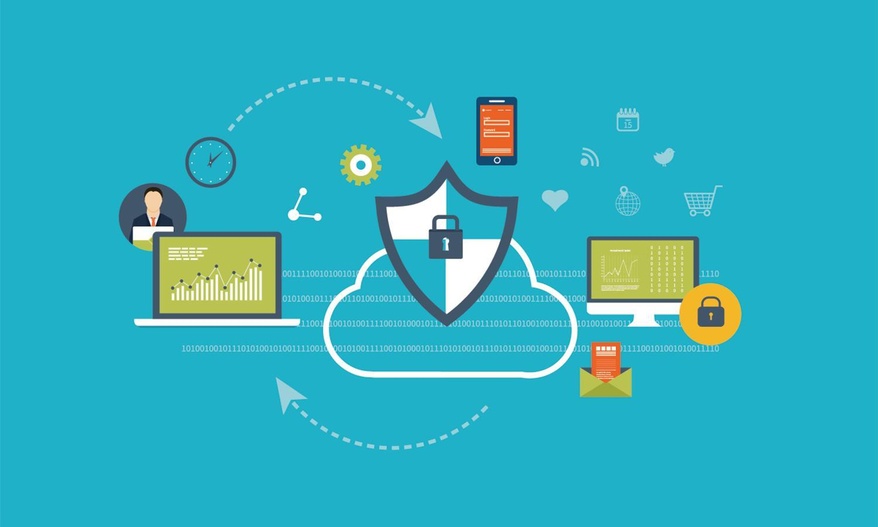Technology opens the doors of opportunities for everyone and cybercriminals or hackers are not at all an exception. All businesses using one or more technology are prone to potential cyber-attacks. The easiest target of cybercriminals and hackers is e-commerce websites.
Among more express checkout policies along with simple purchasing and trading possibilities attract more and more people shop and trade online. Thus, it generates risks of security holes and crimes. Thus, it is important to take additional steps along with the best eCommerce web development, so you can keep your online store as well as customers’ sensitive information confidential.
In this blog post, we will cover the top tips you can adopt to safeguard your e-commerce store from cybercriminals and hackers.
1. Assure to Adhere Payment Card Industry (PCI)
Online buying is essentially reliant on potent protection means. PCI compliance provisions a more reliable safeguard means by authorizing a safe checkout method. It assists defend the online store from all likely attack of hackers into the payment and purchasing details of the buyers.
2. Choose a secure eCommerce platform
Unquestionably, you can find several eCommerce development platforms, including, open-source frameworks as well as simplistic hosting models. Nevertheless, using an open-source solution can be risky as the code is open to all and hackers can know the holes through which they can attack a store. Thus, while investing in an open-source, for example, Magento development, you must invest in building additional security walls to keep the store protected from cyber attacks. Alternatively, you can choose proprietary platforms, which offer inbuilt security mechanisms as well as extensions such as Shopify development.
3. End-to-End Encryption Is A Must
Encryption implies algorithmic methods which shape the data for complicated restructuring by running particular private and public keys. This assures that though the cybercriminal strikes the communication line, data cannot get decipher successfully as it will be encrypted. Thus, you can effortlessly evade any security infringement, by incorporating before-mentioned extremely powerful encryption keys for each communication channel between the business-end and shopper.
4. Tough Passwords Are Must
A majority of passwords used by buyers while signing up are normally easy and very predictable. Inclusion of tougher and stronger password usually keep customer accounts secure as the password is difficult to guess or crack. It is additionally recognized that higher the password length and greater character complexity make it impossible for cybercriminals to breach the security.
5. Do Not Store Sensitive Data
There is certainly no necessity of retaining sensitive information such as credit card details of the buyers, private information, their ID numbers, etc. in the e-commerce website’s database. By not storing this information, you can keep the hackers away from entering your database. Furthermore, even if they sneak-in to the database successfully, they would not get any client information related to their ‘ill-intentions’.
6. Alerts for Unusual Movements
Adding a profoundly powerful alert system, which gives you notification alerts if in any case, the site identifies any suspicious or unauthorized action is important for the store admin to recognize all attacks and threats. Before-mentioned alerts on suspicious movement will assist the managers to instantly take prevention steps. This will eventually prevent precise hackers from fulfilling his/her ill-intentions.
7. Stay up-to-date
Your eCommerce website must stand completely acquiescent to the most advanced software updates issued by the platform you have used for e-commerce store development. It means always upgrade to the latest version of the platform. This will aid you in enhancing the performance as well as applying the security patches often released in the new version of the software. This will keep your eCommerce site more safeguarded.
8. Run Penetration Testing and Quality Assurance
This is a type of software testing, which indicates ethical hacking. To run this test, software testing experts or white hat hackers develop various test cases to attack the system and its components such as shopping cart, database, etc. The agenda of running penetration testing is to identify common hack attacks and safeguard your e-commerce website against all those hack attacks.
9. Continuously Monitor the Store
It provides greater detail of the performance of the online store, according to which the necessary steps can be taken to have a secure store and online shopping experience. Constant monitoring also helps in keeping eyes on possible attacks which might not get caught otherwise.
10. Train Team to Combat Cyber Attacks
Representatives, when authorized to handle situations of cyber attacks, can work with the most prominent competence to combat the threat. Implementing the required training for the team members to keep the website of e-commerce business protected, assures that you never faced bad consequences. This security training given to the staff assures that they will take the primary steps to stop cyber attacks then and there to not let it be hazardous to your business as well as your customers.
You cannot stop online hack attacks and cyber attacks. Particularly, when you run an e-commerce business, you are prone to these threats. However, there is nothing to worry about. All you need to do is, take advantage of technology and skilled people and keep your online store and customers safeguarded. Need help from the eCommerce specialists?

